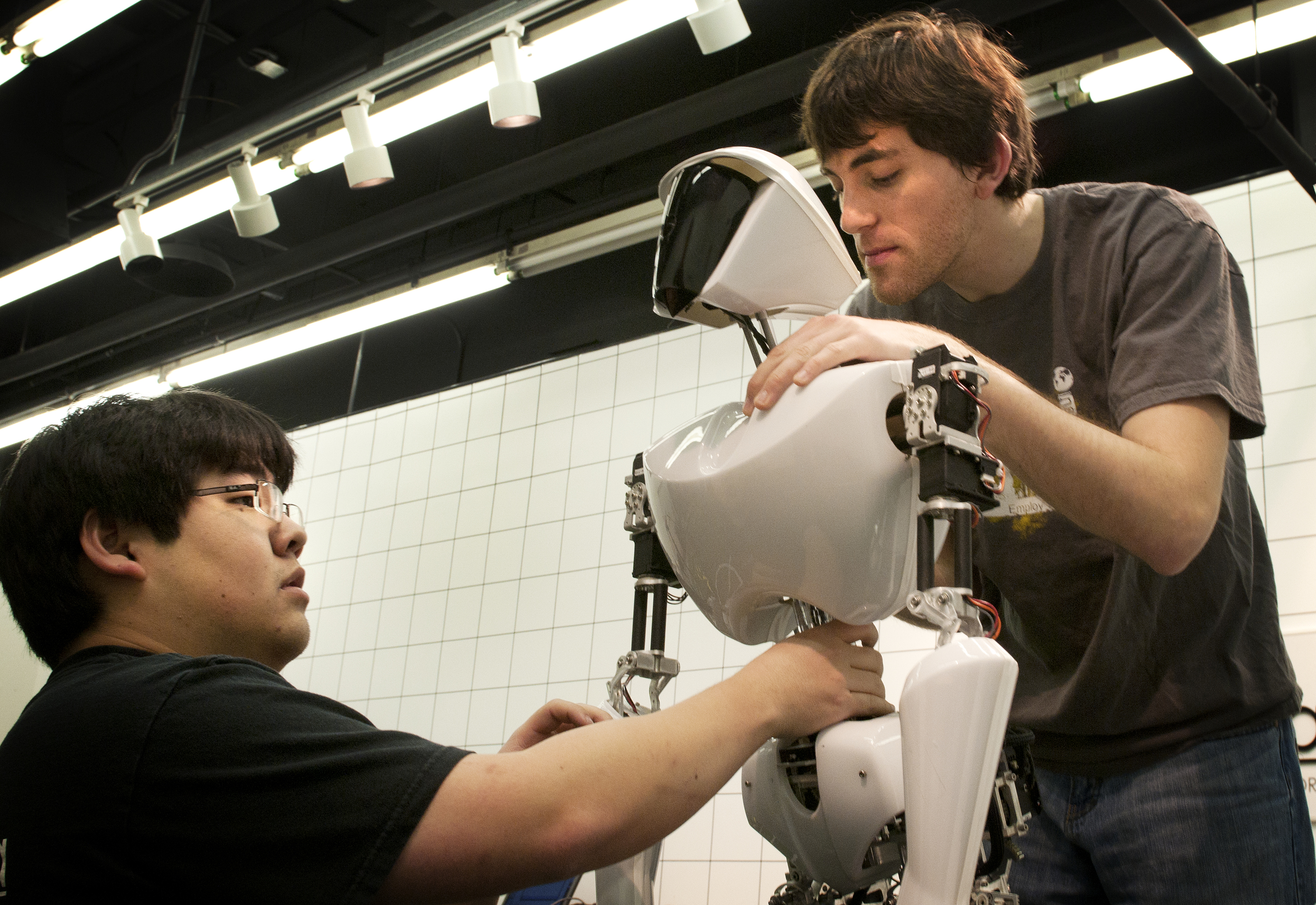Entrepreneur program blazes new trail from lab to market

A Virginia Tech team is working on a better way to build a startup, one that takes less time and money to try new ideas and find customers.
Organizers say the approach, already being applied in a Virginia Tech classroom, will create economic opportunities in Blacksburg, in Arlington, and across the state.
The team of engineers and economic development specialists springs from the Innovation Corps (I-Corps) initiative announced Feb 21. The National Science Foundation program, part of a regional partnership with the University of Maryland and George Washington University, aims to teach researchers how to commercialize technology.
“Virginia Tech is poised to extend its ability to bring its research into the marketplace to promote entrepreneurship and economic development,” said Afroze Mohammed, associate director of strategic alliances in Virginia Tech’s Office of Economic Development in Arlington.
In what's known as “the startup class,” which uses the same customer-centered philosophy of I-Corps, Virginia Tech students search for a viable business model and then decide what's needed to execute it.
In the class, Jack Lesko, associate dean for research and graduate studies in the College of Engineering and one of the principal investigators of the I-Corps grant, promotes the strategy of failing early and often instead of failing bigger and later.
“Most startups fail not because the technology doesn't work, but because they are making something for which there is not a market,” said Lesko, who’s also an entrepreneur. “The long-term success for people who’ve been through the I-Corps is drastically enhanced, because the curriculum encourages them to fail before they bring the wrong product to market.”
The class emphasizes interdisciplinary teamwork while assessing how entrepreneurs learn. Along the same lines, Virginia Tech’s I-Corps team, whose focus is on faculty and postdoctoral students as well as graduate and undergraduate students, includes Stephanie Adams, head of engineering education, and assessment specialist Catherine Amelink.
I-Corps stresses an early and constant focus on customers, encouraging researchers to “get out of the building” and talk to customers about their problems and then apply their technology in a form that meets customers’ needs.
Why are Arlington and Blacksburg significant to the project?
The Virginia Tech Research Center – Arlington is a key hub for Virginia Tech’s research in the National Capital Region and provides a gateway to the university’s research in Blacksburg. Arlington is home to major funding agencies such as the NSF and the Defense Advance Research Projects Agency and to a growing entrepreneurial community.
“Transitioning technologies from government labs and universities into the commercial sector remains a challenge for the region,” said Terry Holzheimer, director of Arlington Economic Development. “I-Corps is a catalyst for increasing commercialization of the region’s technology.”
In Blacksburg and Roanoke, meanwhile, Virginia Tech has the potential to be one of the nation’s entrepreneurial hot spots, said Derick Maggard, director of the Roanoke-Blacksburg Technology Council.
The I-Corps project means that "faculty will be able to better determine how to leverage research dollars to develop technology that can be commercialized. And the more startups in the region that succeed, the more successful we’ll be at attracting investors," Maggard said.
With its presence in Arlington, the Office of Economic Development “is able to coordinate closely with the other I-Corps partner universities and build an innovation ecosystem around Virginia Tech that leverages resources throughout the region,” Mohammed said.
“One of the best ways to grow economic development is through tech transfer, and if you look at vibrant technology ecosystems – Stanford, MIT, the University of Utah – that’s exactly what they’re doing,” Maggard said.
Dedicated to its motto, Ut Prosim (That I May Serve), Virginia Tech takes a hands-on, engaging approach to education, preparing scholars to be leaders in their fields and communities. As the commonwealth’s most comprehensive university and its leading research institution, Virginia Tech offers 240 undergraduate and graduate degree programs to more than 31,000 students and manages a research portfolio of $513 million. The university fulfills its land-grant mission of transforming knowledge to practice through technological leadership and by fueling economic growth and job creation locally, regionally, and across Virginia.








